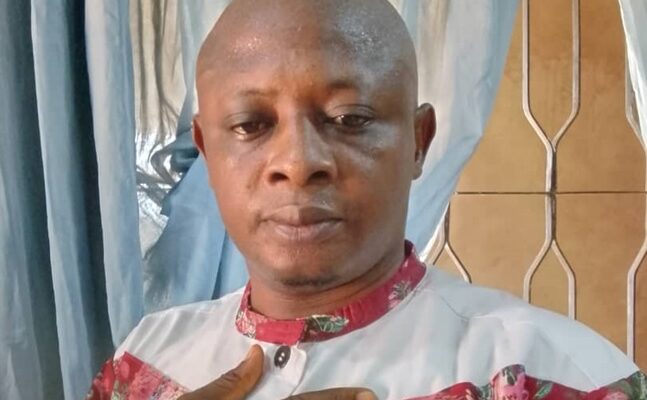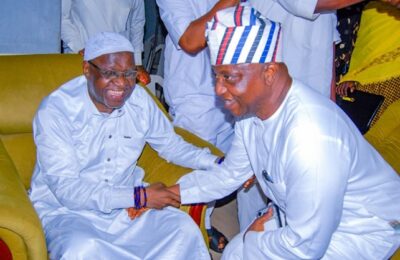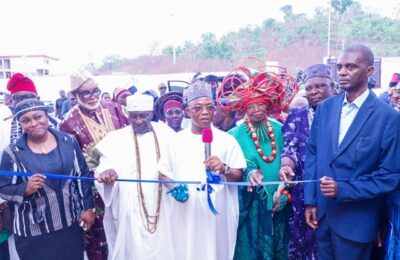There are nights when the cosmos recoils from the sight of Nigeria. The stars blink in trepidation, and the moon veils her luminous face behind the vapours of sorrow. Beneath her trembling light, the soil our motherland where christians walks exhales grief — a lamentation etched into the very anatomy of the earth. From charred sanctuaries, from obliterated villages, from the scent of extinguished hymns, one truth ascends — that the world, with all its declarations of justice, has gazed upon carnage and chosen complicity.
Pete Hegseth’s pronouncement from Washington was no ordinary communiqué. It was an indictment against global apathy — a reverberation of prayers once muffled by the static of indifference. It was the thunder that followed sixteen years of crimson rain, the delayed articulation of what Nigerians have screamed through tears: this is genocide.
Here, numbers have lost their meaning. We no longer enumerate corpses; we memorialize names in whispers. In Benue, in Plateau, in Kaduna — the geography of our pain stretches like an unending requiem. Every razed chapel is a punctuation mark in a liturgy of fire. Every bullet hole in a Holy Bible is a question directed at the conscience of humanity.
Bishop Matthew Hassan Kukah of Sokoto once declared, “The blood of Christians in Northern Nigeria is fast becoming the ink with which the gospel is being rewritten.” His words are both elegy and indictment — an epistemology of suffering that exposes the anaemia of international empathy.
We were told it was a “farmer-herder confrontation.” We were told it was “climate-induced migration.” We were told to intellectualize our massacre into a sociological thesis. But when euphemism becomes the language of reporting, truth dies of suffocation.
The Western media, in its lexical acrobatics, has perfected the art of sanitizing genocide. They have replaced “Christians” with “civilians,” “murder” with “clash,” “massacre” with “incident.” Such linguistic cowardice is not journalism — it is a moral abdication.
There exists no perfidy greater than deliberate equivocation in the face of atrocity. The refusal to name the slain by their faith is not neutrality; it is betrayal. When the New York Times writes about “sectarian tensions” instead of crucifixions in real time, when international outlets translate martyrdom into meteorology, the pen becomes an accomplice to the machete.
In the desolate corridors of Zangon Kataf, faith has become synonymous with fatalism. Women sleep within the skeletal remains of cathedrals not for safety but for sanctity — they prefer to die in prayer than perish in panic. A pastor in Northern Nigeria once whispered to me, “Inah, we no longer hold night vigils; we hold night watches — waiting for death.” That is theology transmuted into trauma.
America’s belated awakening, as voiced by Hegseth, is both benediction and blade — a solace for the forgotten and a mirror to our collective procrastination. His declaration, “This is genocide,” slices through years of semantic evasion like divine retribution. Yet, beneath the applause, one must ask: why did the moral machinery of the West require one hundred twenty-five thousand corpses before it acquired vocabulary?
When forty worshippers were slaughtered in Owo on Pentecost, the world’s press described it as “sectarian turbulence.” When infants were incinerated in Plateau on Christmas Eve, they termed it “a reprisal.” The English language has never been so abused, so contorted to accommodate cowardice.
In Nigeria, we say, “When death drums too long, even the living begin to dance.” Our nation has been forced into that macabre choreography. The rhythm of blood has become our national anthem. Even the rivers now run with reluctant memory.
Yet, within this tragedy, faith endures like a stubborn flame. Archbishop Musa Panti Filibus of the Lutheran Church of Christ in Nigeria said, “We have learned to build our altars with tears, because our worship has become an act of survival.” That is not hyperbole — it is existential theology, the resilience of a people who refuse to let their God be extinguished alongside their homes.
The silence of the international community was never born of ignorance but of preference. It was more convenient to look away, to avoid the discomfort of naming evil for what it is. The United Nations drafted resolutions, the European Union issued condolences, and the African Union convened panels — yet the graves multiplied like autumn leaves after a storm.
To remain silent is not to stay neutral; it is to become an accessory after the fact. Every unreported massacre is a collaboration between apathy and atrocity. Every editorial omission is a nail in the coffin of moral journalism.
Across Borno’s deserts and Nasarawa’s valleys, the dead whisper to the living: “We were seen but not acknowledged.” Their tombs have become the punctuation marks of history’s indifference.
A bishop from Maiduguri once said, “Our government responds to our funerals faster than to our distress calls.” That aphorism encapsulates the state’s dereliction — a governance architecture that has mistaken condolence for policy.
For too long, the global order has romanticized restraint in the face of evil. But blood, once spilled, becomes the most articulate witness. It demands hearing, it demands justice, it demands remembrance.
And now, it has found an echo — not in the corridors of diplomacy, but in the voice of an American warrior who refuses to speak in euphemisms.
Yet even this echo must be handled with discernment. For while intervention may halt the slaughter, it may also awaken the ghosts of imperial pretension. If America must come, let it not come as saviour, but as witness — one that restores dignity to the dead and safety to the living.
Nigeria’s rulers, draped in bureaucratic callousness, call these massacres “isolated incidents.” But denial, when institutionalized, becomes a theology of betrayal. The Nigerian military’s inertia has not been born of incompetence but of collusion.
And so, the blood keeps speaking — from the ground, from the ruins, from the songs unfinished by gunfire. It is the language the world pretended not to understand.
But now, even heaven has begun to translate it.
– Inah Boniface Ocholi writes from Ayah – Igalamela/Odolu LGA, Kogi state.
08152094428 (SMS Only)




